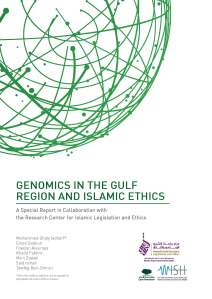 In much the same way that genomic technologies are changing the landscape of biomedical research, the ethical issues these technologies generate are setting today’s agenda of ethics research. The distinct ethical issues concerning the management of incidental findings represent a serious challenge that has occupied the minds of
In much the same way that genomic technologies are changing the landscape of biomedical research, the ethical issues these technologies generate are setting today’s agenda of ethics research. The distinct ethical issues concerning the management of incidental findings represent a serious challenge that has occupied the minds of
Western bioethicists for a while, but has yet to capture due attention from specialists in the Muslim world.
Incidental findings are generally defined as results that arise although they were not part of the original purpose of the research project or clinical test. Ethical management of these findings is not a simple matter, because while they can be lifesaving, they can also lead to harmful consequences for the individual and community at large, and at other times lack any clear significance.
The new report ‘Genomics in the Gulf region and Islamic ethics’ is to be discussed during today’s World Innovation Summit for Health (WISH) addresses some aspects of the ethical management of incidental findings from an Islamic perspective.
Incidental findings are generally defined as the results that arise despite not being the intended original purpose of the research project or clinical test. Ethical management of these findings is not a simple issue because while they can be lifesaving, they can also lead to harmful results for the individual, and community at large and at other times lack any clear significance.
The authors address some aspects of the ethical management of incidental findings from an Islamic perspective. The report is divided into three main areas:
- An overview of recent genomic initiatives in the Gulf region with a focus on Qatar and Saudi Arabia.
- A review of international deliberations on the ethical management of incidental findings.
- Delineating Islamic bioethical discussions related to incidental findings.
Report insights
The report issues a series of six recommendations to help improve discussion and develop culturally sensitive policy for the management of incidental findings:
- Potential recipients of incidental findings should be properly informed.
- Incidental findings that can lead to actionable, lifesaving procedures should be disclosed.
- Incidental findings related to (misattributed) paternity should not be disclosed.
- There are many nuances that will affect best practice in the ethical management of incidental findings.
- Rigorous research on Islamic ethics is needed in order to properly indigenize genomics in the Gulf region.
- Islamic bioethics should be rooted in the Islamic tradition but should also engage with global bioethical discussion.
Further Reading
Read the full report here.
Read all the WISH forum reports here.
About the World Innovation Summit for Health (WISH)
WISH focuses on some of the most pressing global health challenges facing governments, health systems and populations. WISH brings together internationally renowned experts, who work with advisory groups to publish evidence-based reports on a range of healthcare topics each year.
Chaired by a team of experts drawn from academia, industry and policymaking, the WISH Forums look in depth at the challenges faced in each area – surveying the literature and interviewing experts in the field. The Forum reports present some of the very best innovations that have been shown to have real impact across the developed and the developing world.
During the Summit, the Forum reports will form the basis of a series of panel discussions hosted by leading experts. The Chair of each Forum will open the panel discussion, focusing on ways key issues can be tackled and considering some of the available innovations that might help.
For further information about WISH and previous conferences, visit their website.
